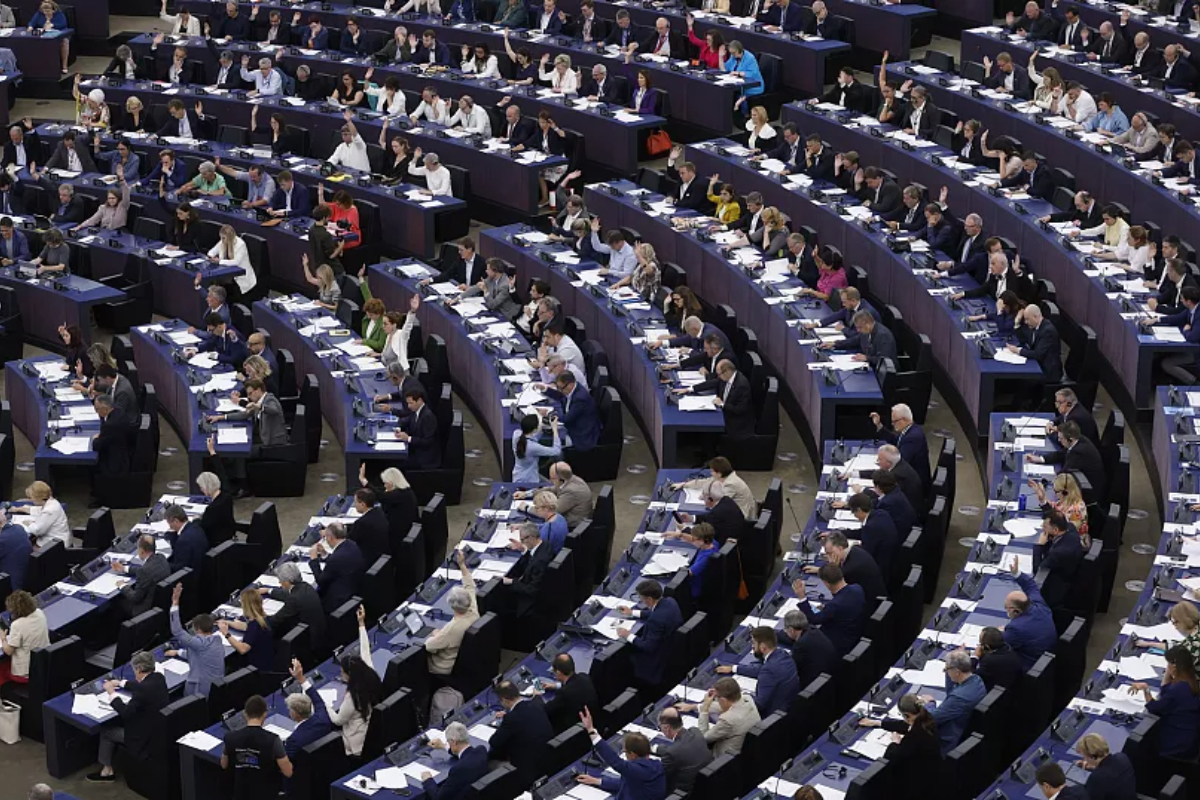- AI deepfakes raise manipulation concerns for European elections.
- 2024 may see a rise in Euroscepticism fueled by AI smear campaigns.
- Mixed reactions to AI Act create uncertainty in regulating and tackling Euroscepticism.
As the European Parliament elections loom on the horizon for June 6-9, 2024, concerns are growing over the potential impact of artificial intelligence (AI) on the political stability of the European Union. AI, heralded as a double-edged sword, has been praised for its creative and comedic applications, but it also raises fears of job displacement and the spread of misinformation.
Europe’s current geopolitical challenges, including Russia’s ongoing invasion of Ukraine, conflicts in the Middle East, and the aftermath of the COVID-19 pandemic, have created a volatile backdrop for the upcoming elections. Populist movements and Eurosceptic sentiments have been gaining traction in recent years, fueled by economic inequality and cultural clashes.
Political analysts, including Andrea Pirro from the University of Bologna, warn that the existing context of growing inequality and cultural tensions provides fertile ground for Eurosceptic forces to blame EU elites for the state of affairs. The upcoming elections are seen as a potential powder keg for a populist hurricane in Europe.
The role of AI in influencing elections is a cause for concern, with the technology blurring the lines between fact and fiction. Deepfake technology, capable of creating realistic images and videos of public figures, poses a significant risk within the political context. EU cybersecurity agency ENISA has already reported a rise in AI tools, including chatbots like ChatGPT, and related cybersecurity incidents, emphasizing the need for vigilance to safeguard the electoral process.
Marius Ghincea, a political science researcher at the European University Institute, predicts a resurgence of Euroscepticism in the 2024 elections, with significant gains expected across Eastern and Western European countries. AI, if misused, could potentially play a role in amplifying anti-European sentiments.
The use of AI by Eurosceptic parties is not unprecedented, as social media has been a key tool for them in the past. AI’s ability to create realistic content could enhance the effectiveness of smear campaigns against EU elites and Europhile opponents, according to Andrea Pirro.
The recently approved Artificial Intelligence Act by the European Parliament and EU Council aims to regulate AI at a legislative level. However, the mixed reaction to the act, with criticism from the tech sector and discontent expressed by powerful EU players like Germany, France, and Italy, adds uncertainty to its effectiveness.
Marinus Ossewaarde, an associate sociology professor at the University of Twente, warns that unregulated AI could impact democratic decision-making, emphasizing the need to prevent AI from becoming a tool in the hands of big tech oligarchs.
As Europe braces for the pivotal 2024 elections, the influence of AI on the political landscape raises critical questions about the potential rise of Euroscepticism and the need for effective regulation to safeguard democratic processes.
[embedpost slug=”/ai-dominates-2023-a-year-of-unprecedented-technological-advancements/”]





















